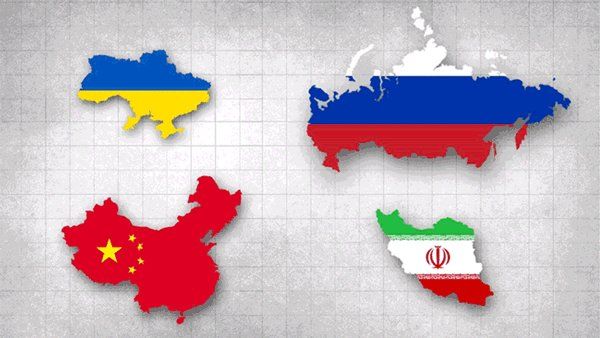Investors hate uncertainty. For now, most of them are trying to understand how central bankers, particularly at the US Federal Reserve, will calibrate changes in interest rates to slow inflation while avoiding recession.
But there are also three big geopolitical stories that will generate plenty more questions throughout 2023.
Russia’s war
After more than a year of war following Russia’s invasion of Ukraine, two realities have emerged. Russia’s military isn’t strong enough to conquer Ukraine, but it is probably strong enough to prevent a complete Ukrainian victory. The war has now settled into a stalemate that continues to put upward pressure on energy prices and threaten further surges in food prices. (The current deal to allow grain exports through the Black Sea expires on March 18.)
To some extent, the consensus expectation for a war that lasts beyond 2023 will allow producers and companies to adjust their supply chains to new realities, to make alternative arrangements for diminished supplies of oil, gas, grain, and other commodities, and to find new trade partners.
But wars create surprises, and Russia’s inability to win the war leaves its leaders to think up creative new ways to punish Ukraine and its backers, with attacks in cyberspace, on pipelines, or on fiber optic cables, for example, adding wildcards to a deck already stacked against a predictable economic recovery from COVID.
China’s rebound?
In a time of war and global economic uncertainty, China poses a long list of questions. After all its extended COVID lockdowns, can Chinese leaders jumpstart China’s own economic growth to inject new fuel into global commerce? The relatively modest growth target the Chinese leadership recently announced generates optimism that Beijing has a realistic understanding of the risks in pushing too hard too quickly on state spending and loose lending. Has China finally cleared its COVID hurdles? There’s a lot of optimism on that front. Will US-China relations continue to deteriorate? If Washington decides that Xi Jinping’s government is trying to boost Russia’s odds of winning the war, that’s a safe bet.
Iran in flux
Two weeks ago, a senior US Defense Department official issued a startling warning. “Back in 2018,” he said, “when the [Trump] administration decided to leave the JCPOA, it would have taken Iran about 12 months to produce one bomb's worth of fissile material. Now it would take about 12 days.” That followed news in February that the International Atomic Energy Agency charged with monitoring Iranian nuclear facilities had reported finding small quantities of uranium enriched at 84%. (Enrichment at 90% can produce a nuclear weapon.)
This is a country preparing for its first transition of supreme leadership in more than 30 years, given Ali Khamenei’s advancing age and declining health. (He’ll be 84 next month.) It has faced widespread protests. The unrest seems to have died down for the moment, but given how abruptly the upheaval began, some new and equally unexpected trigger could start the cycle of demonstrations all over again. And Iran’s willingness to provide Russia with drones for use against Ukraine has newly antagonized Europeans as well as Americans.
There are fears in Israel that only an attack on Iran can prevent the development of a nuclear weapon. What’s more, many say that the recent restoration of ties between Iran and Saudi Arabia, brokered by China, is yet another sign of the deepening rift between Washington and Riyadh. Taken together, this all suggests there is constant wrangling in the heart of the world's main oil-producing region, where the US holds limited leverage.
In all these cases – Russia’s war, China’s rebound, and Iran’s flux – we have risks that are reasonably well understood. None is guaranteed to create a new and unforeseen crisis, but all of them bear careful watch through 2023 and beyond.
